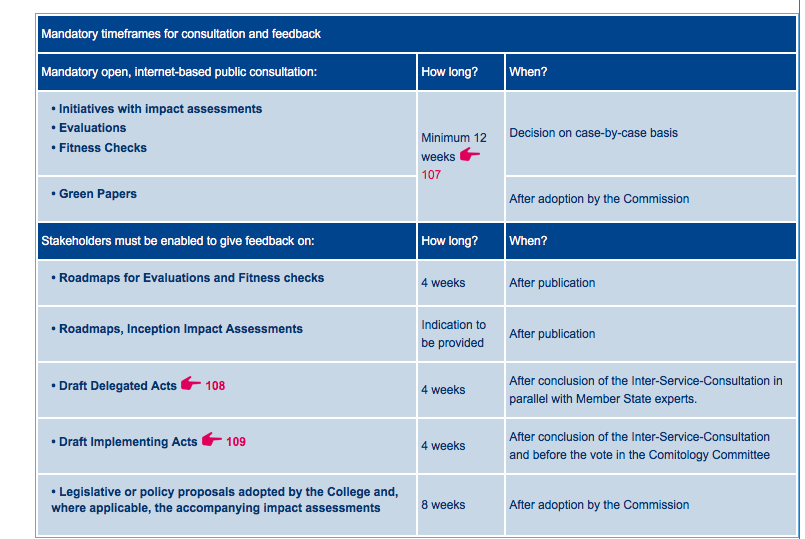I hold a lot of deeply unfashionable views. I am a free trade social democrat of green persuasions. I am even a fan of 1st Vice President Timmermans and his, nearly single hand effort, to install better regulation on the Commission. It is, I realise, a small niche.
Better Regulation Is not De-regulation
Some people for and against Better Regulation give the idea that it is Any Ryand on amphetamines.
I am sorry for those and who think that way. They are wrong.
This quote from Cass R Sunstein, Risk and Reason, on describing the use of cost benefit analysis is appropriate:
“If they were taken seriously, and implemented in the right way, they would have an extremely important effect on risk regulation, potentially saving billions of dollars and tens of thousands of lives. Understood in light of this pragmatic goal, the movement toward cost – benefit analysis should be seen as an effort to ensure, not the companies open speech marks save money close, close each month and not look regulation is open speech marks scaled back, close speech marks but the regulation is understood with a firm sense of its consequence for those who are subject to it,” (page 6).
Much the same case can be used for Better Regulation.
Better Regulation, and the tool box and instruments that support it, are not to shed EU rules, but rather to make sure that the rules that are there, and are introduced, are the most effective ones. The greatest tragedy is not to have new rules introduced, but rather to have new rules introduced that do not live up to their promise and fail to deliver. As Europe struggles to deliver on a historic promise to 508 million citizens, Better Regulation should be seen as delivering well on a few things, rather than leaving a long paper trial of inept or unenforced laws that fails the many.
Are you boouvered
Too often people seem as self obsessed as Lauren Cooper when she met Tony Blair. The reaction of Tony Blair is likely to be the reaction of the Secretary-General as they review the submissions.
Tool Box – Use it, read it
The feedback to Better Regulation public consultations overall has been limited and often lacks depth. There is around 440 responses for each public consultation. Those numbers, on closer examination, are even worse. There were 189 public consultations published between 2015-2016. A few got most of the public feedback.
The tool box (see here) is a model of clarity. It really spells on what you need to bring to the table. Despite this, it is seeming that less than a handful of people have ever opened it outside the Commission. I doubt a handful have ever opened it within the Commission.
If people want to use Better Regulation, they will need to raise your game. The quality of submissions so far has all too been often been examples in wishful thinking rather than serious analytical case studies in persuasion. The amount of people using it remains pitiful.
Feedback loops
Your only risk is being strangled by feedback loops.
When How Link
Road map Inception Impact Assessment Feedback here
Evaluation Roadmap Feedback 12 weeks here
Draft implementing rules Posted for 4 weeks here
Commission proposal & IA 8 weeks post adoption here
A good summary chart is available from the Commission’s Guidelines (here) at section 6.1.3
Why using them is important
Your chances of influencing after the Commission publish their proposal are limited. Two very experienced senior officials in DG Environment I had the pleasure to work for, put the extent to which the Commission’s proposals were changed at by the Parliament and Council at 10%. Maybe the numbers have changed these days, but I am doubtful.
Most EU legislation is delegated legislation; these figures are telling:
2014 2015
Delegated Acts 130 104
Implementing Acts 1538 1558
RPS 180 143
Total 1848 1805
Around 50% of delegated legislation is subject to the Better Regulation checks.
Better Regulation Really Works
The short answer is yes, but not many people use it.
A proposal on Roaming Charges was withdrawn after a few hundred objections were posted (see Press Release of the Commission 9 September 2016 here). I have used Better Regulation arguments for a client who faced seemingly insurmountablepolitical odds. They walked away relatively unscathed. It is even now used for REACH substance bans (see here) despite the push back by the Commission Services.
There are sure fire ways of getting little or nothing out of Better Regulation. Repeating well know mantras that speak to the home fans, rather than the audience you are trying to persuade (regulators), is the usual approach. It does not work. Submissions need to be deeply analytical and fact driven. Plain English helps.
Hard analytical and clear argumentation that address the concerns of the regulator may well be unfashionable. It is an old fashioned view I cling to, knowing that every time I have used it, the interests I represent win.
